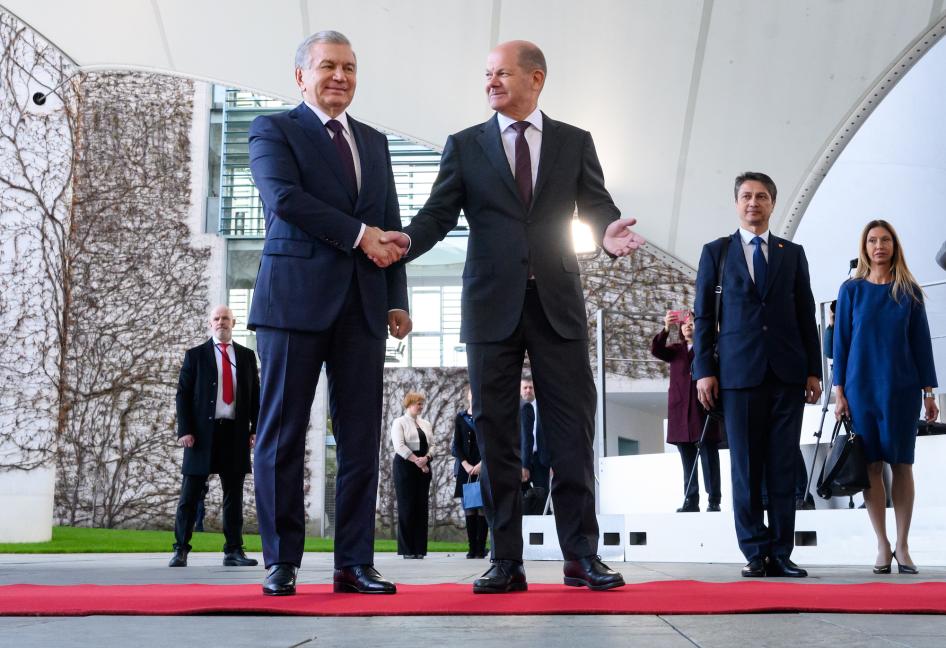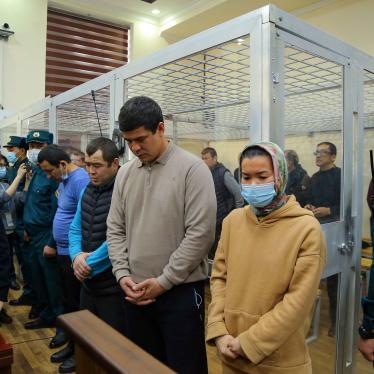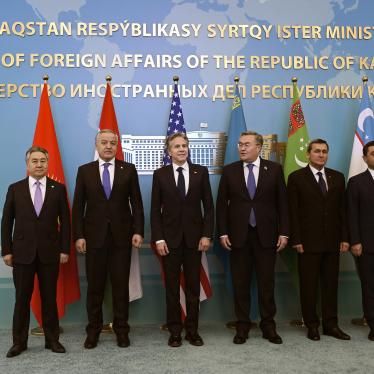On September 29, German chancellor Olaf Scholz will meet with the presidents of the five countries in Central Asia: Kazakhstan, Kyrgyzstan, Tajikistan, Turkmenistan, and Uzbekistan. Regional tensions, especially since Russia’s full-scale invasion of Ukraine, are likely to dominate the agenda. But Germany should not pass up the opportunity to press the Central Asia leaders on the very poor human rights records in their countries.
The Ukraine war has sparked a new focus on this strategically important, resource rich region. At Friday’s meeting, Germany is expected to urge the five countries to resist efforts by Moscow to use trade routes through their region to evade sanctions. The gathering will also be the first of its kind led by a German chancellor or any national European leader. Last week Joe Biden held the first-ever summit between a United States President and his Central Asian counterparts. Following that meeting, the leaders issued a joint statement affirming their commitment to protecting rights.
Charles Michel, president of the European Council, has met twice with Central Asian heads of state since last October and German president Frank-Walter Steinmeier will also meet with his five counterparts on Friday.
Politically motivated prosecutions, suppression of free speech, and impunity for torture are widespread in Central Asia. Clashes during street protests in Kazakhstan and Uzbekistan in 2022 left over 250 people dead, with no proper accountability for these deaths. Authorities in Kyrgyzstan are carrying out a wave of attacks on civil society and independent media. Tajikistan has intensified repression of opposition voices, violently cracking down on peaceful dissent in the autonomous region of Gorno-Badakhshan. And Turkmenistan remains one of the most closed and repressive countries in the world.
Germany plays a strong role on Central Asia, as a leading trade and investment partner and a key political motor behind the European Union’s Central Asia strategy. It should use this position to make clear that upholding fundamental human rights standards and respecting rule of law are essential to any long-term partnership between Europe and these authoritarian states.
The shockwaves sent by Russia’s invasion of Ukraine have prompted Central Asia’s leaders to seek stronger ties with other allies, including in Europe. Germany should make the most of this newfound engagement, but on terms that promote the rights of the peoples throughout the region.









